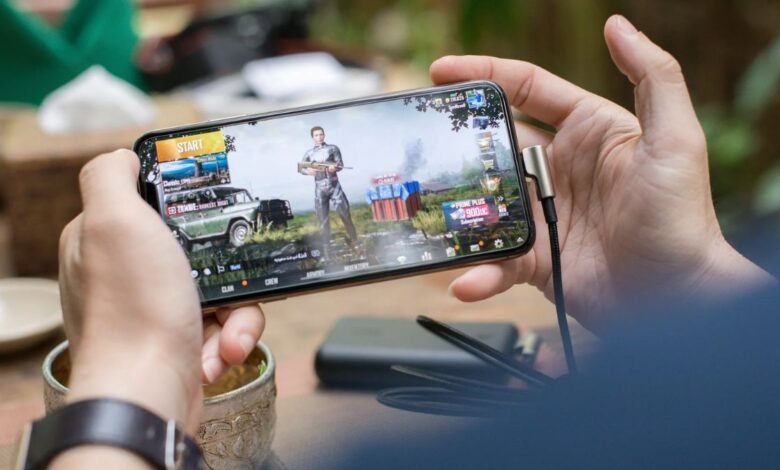Exploring the Cultural Impact of Mobile Games Globally

Mobile games have become a ubiquitous part of modern life, influencing not just how people entertain themselves, but also how they communicate, socialize, and even perceive the world around them. As smartphones have proliferated across the globe, so too have mobile games, evolving from simple distractions into complex cultural phenomena. This article explores the cultural impact of mobile games on a global scale, examining how they shape societies, influence behavior, and reflect broader cultural trends.
The Evolution of Mobile Games: From Simple Pastimes to Cultural Touchstones
The journey of mobile games began with rudimentary, pixelated games like “Snake” on early Nokia phones. These games were simplistic, offering brief moments of entertainment during downtime. However, as technology advanced, so did the complexity and scope of mobile games. The introduction of app stores and the rise of smartphones catalyzed a revolution, transforming mobile games from mere diversions into powerful cultural artifacts.
Today, mobile games are not just about passing time; they are about creating and participating in complex narratives, communities, and economies. Games like “Candy Crush,” “Clash of Clans,” and “PUBG Mobile” have achieved global fame, with millions of players around the world. These games are more than just popular—they are cultural touchstones that influence language, behavior, and even societal norms.
The evolution of mobile games reflects broader technological and social changes. The rise of social media, for instance, has been mirrored in the social aspects of mobile gaming, where players can connect, compete, and collaborate with others around the globe. Similarly, the increasing accessibility of smartphones has democratized gaming, allowing people from diverse backgrounds and regions to engage with games that were once the domain of dedicated gamers.
The Social Dynamics of Mobile Gaming: Fostering Global Communities
One of the most significant cultural impacts of mobile games is their ability to foster global communities. Unlike traditional video games, which often required expensive consoles or powerful computers, mobile games are accessible to anyone with a smartphone. This accessibility has allowed mobile games to reach a much broader audience, transcending geographical, economic, and cultural barriers.
Mobile games have created new social spaces where players from different parts of the world can interact, collaborate, and compete. Games like “Pokémon GO” have brought people together in the real world, encouraging them to explore their neighborhoods, meet new people, and even travel to new places. Meanwhile, multiplayer games like “PUBG Mobile” and “Free Fire” have created virtual communities where players can team up with others from different countries, forming bonds that often extend beyond the game itself.
These global communities are not just about entertainment; they also have profound cultural implications. Through mobile games, players are exposed to different cultures, languages, and perspectives. This exposure can foster a sense of global citizenship, encouraging players to think beyond their own cultural context and appreciate the diversity of the world. Moreover, the global nature of mobile gaming communities can lead to the cross-pollination of cultural ideas, contributing to the creation of new, hybrid cultural forms.
The Economic Impact of Mobile Games: A New Cultural Economy
Mobile games have also had a significant economic impact, creating a new cultural economy that spans the globe. The mobile gaming industry is one of the fastest-growing sectors in the entertainment industry, generating billions of dollars in revenue each year. This economic impact is not just limited to game developers and publishers; it also extends to a wide range of industries, including advertising, e-sports, and even tourism.
In many countries, mobile games have become a major driver of economic growth, creating jobs and supporting local businesses. For example, the success of games like “Honor of Kings” in China has led to the growth of a thriving e-sports industry, with professional players, teams, and tournaments attracting millions of viewers and generating significant revenue. Similarly, mobile games have created new opportunities for content creators, who produce gameplay videos, tutorials, and live streams that attract large audiences on platforms like YouTube and Twitch.
The economic impact of mobile games also has cultural implications. The success of certain games can lead to the rise of new cultural icons and symbols, influencing fashion, language, and even political discourse. For example, the characters and symbols from mobile games often become popular cultural references, appearing in memes, social media posts, and even protest movements. In this way, mobile games contribute to the creation of a new, globalized cultural economy, where cultural products and symbols are exchanged and repurposed across different contexts and regions.
The Influence of Mobile Games on Language and Communication
Another significant cultural impact of mobile games is their influence on language and communication. Mobile games often introduce new words, phrases, and expressions that become part of the everyday language of players. This phenomenon is particularly evident in online multiplayer games, where players develop their own jargon and slang to communicate quickly and efficiently.
The influence of mobile games on language is not just limited to in-game communication; it also extends to how players interact with each other outside of the game. For example, terms like “GG” (good game), “noob” (a new or inexperienced player), and “buff” (a game mechanic that improves a character’s abilities) have entered the lexicon of gamers around the world. These terms often spread beyond the gaming community, becoming part of the broader cultural language.
In addition to influencing language, mobile games also impact how people communicate. The rise of mobile games has been accompanied by the growth of new forms of communication, such as messaging apps, voice chat, and social media platforms, where players can share their experiences and strategies. These new forms of communication have transformed how people interact, both within and outside of the gaming community.
Mobile games have also influenced the way people perceive and use technology. The gamification of social interactions, where game-like elements are incorporated into non-game contexts, has become increasingly common. This trend can be seen in the design of social media platforms, fitness apps, and even educational tools, where elements like points, levels, and rewards are used to engage and motivate users. In this way, mobile games are shaping not just how people communicate, but also how they engage with the world around them.
Cultural Representation in Mobile Games: A Global Perspective
Cultural representation in mobile games is another area where these games have had a significant impact. As mobile games have become more popular globally, there has been increasing attention to how different cultures are represented within these games. This representation is not just about the characters and settings of the games; it also involves the themes, narratives, and values that the games promote.
In many cases, mobile games have been criticized for perpetuating stereotypes and promoting a narrow, Western-centric view of the world. However, there has also been a growing movement towards more inclusive and diverse representation in mobile games. Developers are increasingly recognizing the importance of creating games that reflect the diversity of their global audience, incorporating characters, stories, and themes from different cultures.
This trend towards greater cultural representation is not just about political correctness; it also has important cultural implications. By creating games that reflect a wider range of experiences and perspectives, developers can help to challenge stereotypes, promote cultural understanding, and foster a sense of inclusion and belonging among players. Moreover, the representation of different cultures in mobile games can also serve as a form of cultural preservation, helping to keep traditional stories, symbols, and practices alive in the digital age.
At the same time, the globalization of mobile games has led to the emergence of new, hybrid cultural forms. As games are adapted for different markets, they often incorporate elements from various cultures, creating unique cultural products that reflect the global nature of the mobile gaming industry. This process of cultural hybridization is not without its challenges, as it can sometimes lead to the dilution or misrepresentation of certain cultural elements. However, it also offers opportunities for creativity and innovation, as developers experiment with new ways of blending different cultural influences.
The Future of Mobile Games: A Cultural Force to Be Reckoned With
As mobile games continue to evolve and expand, their cultural impact is likely to grow even more significant. The rapid pace of technological change, combined with the increasing globalization of the mobile gaming industry, suggests that mobile games will continue to play a central role in shaping the cultural landscape of the future.
One of the key trends to watch is the increasing integration of mobile games with other forms of media and entertainment. As mobile games become more sophisticated, they are likely to become even more intertwined with movies, television shows, music, and other cultural products. This convergence of media will likely lead to new forms of storytelling and cultural expression, as well as new opportunities for cross-cultural exchange.
Another important trend is the growing importance of social and political themes in mobile games. As games become more than just a form of entertainment, they are increasingly being used as a platform for social commentary and political activism. This trend is likely to continue as developers explore new ways to engage players with important issues and encourage them to think critically about the world around them.
Finally, the future of mobile games will also be shaped by the ongoing debate over the ethical implications of gaming. As mobile games become more pervasive and influential, questions about their impact on mental health, social behavior, and cultural values will become increasingly important. Addressing these issues will require a careful balance between innovation and responsibility, as developers and regulators work together to ensure that mobile games continue to be a positive cultural force.
Conclusion: The Enduring Cultural Impact of Mobile Games
Mobile games have come a long way from their humble beginnings, evolving into a powerful cultural force that shapes how people interact, communicate, and perceive the world. From fostering global communities to influencing language, communication, and cultural representation, mobile games have left an indelible mark on modern culture.
As the mobile gaming industry continues to grow and evolve, its cultural impact is likely to become even more pronounced. Whether through the creation of new cultural forms, the promotion of cultural understanding, or the exploration of social and political themes, mobile games will continue to play a central role in shaping the cultural landscape of the future. As such



